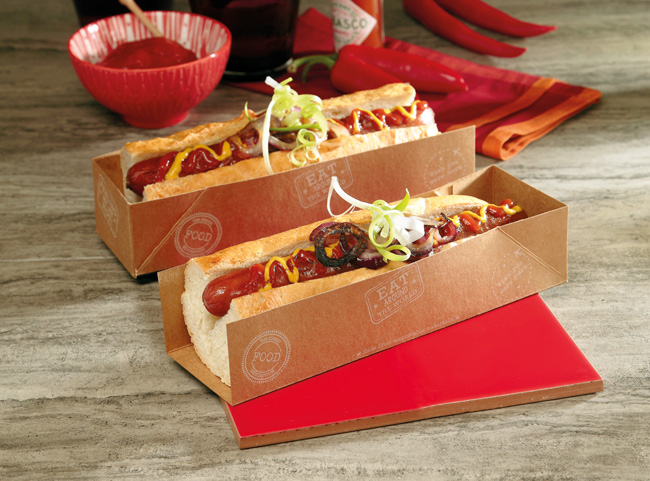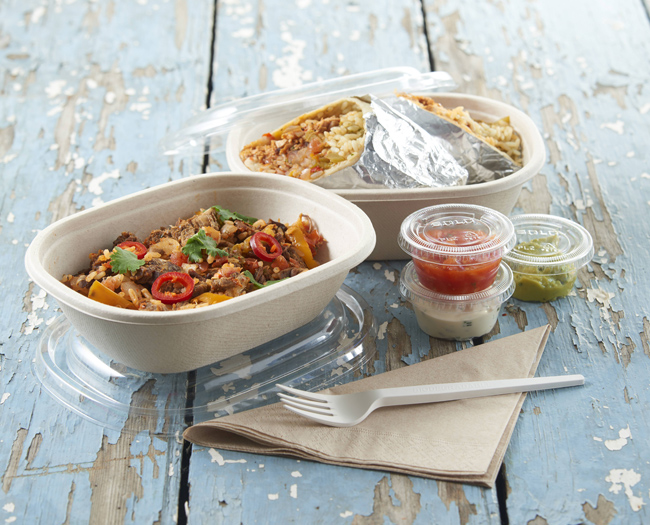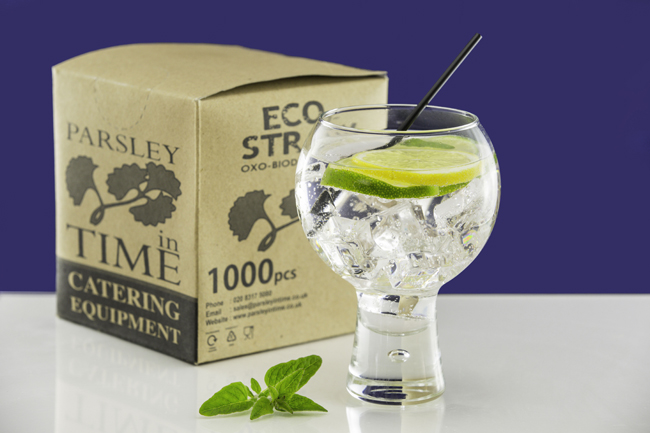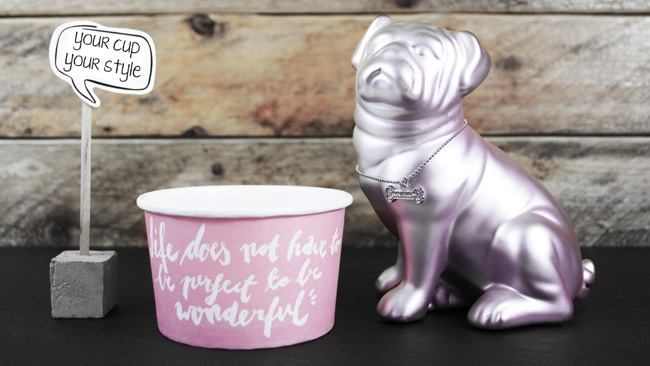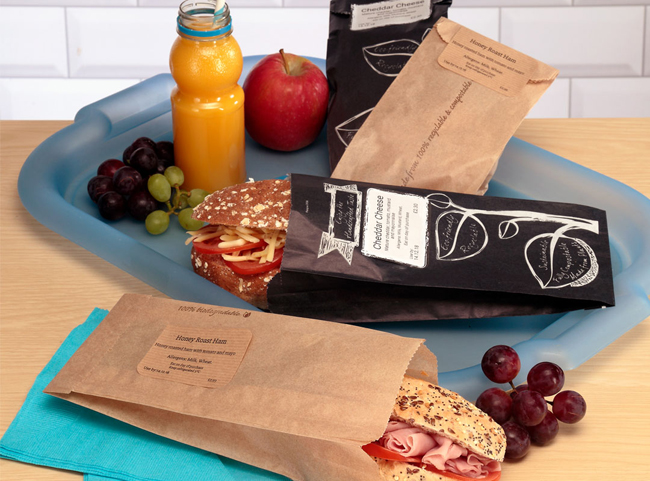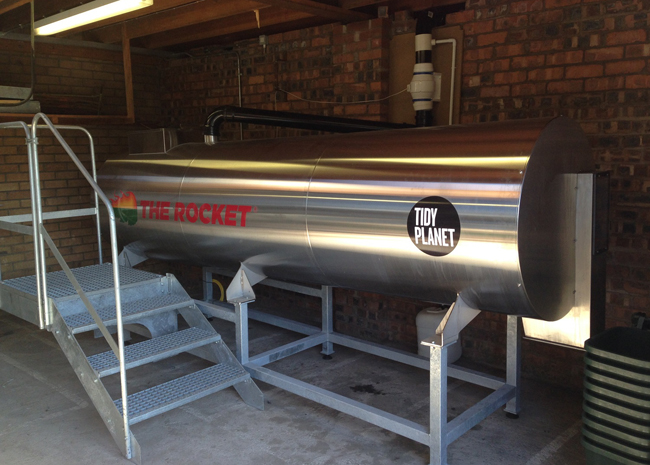Wrapper's delight: eco-friendly plastic alternatives
Environmentally and commercially friendly alternatives to plastic food packaging are emerging, promising hope both for threatened marine life and a quality product for food-to-go diners. John Porter reports
Fittingly, the tide may have turned on the use of plastic in packaging following a TV programme about the oceans. Towards the end of last year, the BBC's Blue Planet II series spotlighted the damage that plastic waste is doing to marine life all around the world.
The resulting outcry put the hospitality sector in the dock in two areas in particular: disposable cups, especially those used for coffee, which may in theory be recyclable but in practice rarely are; and the ubiquitous plastic straws dispensed from bars and food counters across the sector.
In the face of public uproar, the industry's voluntary response has been swift. Coffee brands such as Costa, Starbucks and Pret A Manger now offer discounts to customers using reusable cups, while pub and bar groups, including JD Wetherspoon and Revolution, have removed plastic straws from their premises.
That, though, may be, to coin a phrase, clutching at straws. In April the environment secretary Michael Gove announced a consultation on legislation to ban single-use plastics, including straws and drink stirrers, although the proposed latte levy of 25p on disposable cups seems to be on hold as the government monitors the impact of voluntary measures.
In advance of a decision from the government, purchasing group Beacon advises operators that switching to alternatives to single-use plastic items, such as straws, is a price that is worth paying now. Beacon's managing director Paul Connelly says operators "must be prepared to invest in this change in the short term, as alternative products may initially be more expensive. With demand currently outstripping supply, businesses should expect there to be limited price negotiations, as it is currently a sellers' market.
"However, as the potential ban on single-use plastic becomes more integrated across business strategies, we predict that supply will catch up with demand, leading to more cost-effective solutions."
Tableware specialist Parsley in Time supplies paper straws to a range of London restaurants and bars and has pledged to stop selling single-use plastic straws this year. However, marketing manager Rob Blunderfield says: "It's not just as straightforward as saying all plastic is the problem - biodegradable and reusable plastic is out there, it just needs to be appropriated as an alternative to the traditional resource.
"Despite being constructed from substances such as starches, plant oils and fruit peel, the environmentally-friendly plastic straws are equally as durable as the nasty plastic ones, yet can take as little as 12 weeks to decompose."
The industry's packaging challenge goes well beyond straws and cups. Research for disposables supplier Huhtamaki shows that 73% of consumers are buying food to go at least once a week, and 80% buy takeaway hot drinks.
Kathryn Oldershaw, marketing director for tableware company Utopia, says: "The move to authentically run, independent restaurants throughout the UK, as well as the rise of the likes of Deliveroo and Uber Eats, has meant that the food-to-go market has become more premium, whereas before it was focused around cheaper offerings. Disposables have had to improve as well. When paying for a meal to go from a restaurant, the packaging must meet the expectation to ensure continued brand loyalty."
Meanwhile, plant-based packaging specialist Planglow reports that while demand for hot-food packaging is on the rise, disposable products for chilled and ambient sandwiches continue to reign supreme, accounting for 60% of the company's total packaging sales last year.
n June, Brakes launched its 2 Zero 20 campaign to eliminate the use of non-recyclable hard black plastics from all its own-brand products by the end of 2020. Chief executive Hugo Mahoney says: "We are also working with some of the UK's leading foodservice brands, suppliers and experts as part of our packaging forum as we seek to find alternatives to problematic materials and unnecessary single-use items."
He points out that, as recycling facilities across the UK vary in their capability to sort some plastics, "there is an infrastructure investment that will be needed to minimise plastics that end up in landfill and polluting the environment. That's why we're focusing on hard black plastics; while these may be recyclable at some facilities, they are hard to sort as the infrared scanners don't always pick them up on the conveyors and they end up in landfill."
Ultimately, consumer pressure is likely to be the biggest factor in changing the sector's approach. Research by water filter specialist Brita with the Keep Britain Tidy campaign found that 64% of consumers would be more likely to return to an outlet if they could refill their water bottle, and 73% would view a business more favourably if it gave free tap or filtered water on request.
Steve Buckmaster, director of sales at Brita Professional, says: "What this research shows is that moving away from serving water in single-use plastic bottles is not only a move in the right direction in the drive to become more sustainable, but it also makes sound business sense too through the increased customer loyalty it generates."
With product solutions available across categories from cutlery through to hot and cold cups, salad containers, food containers and straws, Des Thurgood, sales director of supplier WK Thomas, says: "Caterers are already thinking of sustainable packaging and suppliers are responding. Market ethics therefore are converging with consumer ethics and the sustainability outcomes sought by ministers.
"Why force the pace with legislation that's been cooked up even quicker than the fastest food to go but is nowhere near as subtle, satisfying, flexible or as responsive to modern needs as today's food-to-go operators and those who serve up its packaging?"
Sustainable, recyclable, compostable
Becci Eplett, marketing manager of Huhtamaki UK, says: "With much coverage in recent months around environmental responsibilities, there has been an increase in information and awareness around sustainability, recycling and composting. The terminology and different explanations can lead to confusion."
Is the packaging from a sustainable source? PEFC or FSC-certified wood is sourced from sustainably managed forests.
Can it be recycled? Recycling is important to ensure that waste is diverted from landfill, but hot cups with a plastic lining may require a specialist cup recycling scheme.
Unless compostable products are composted on-site, they have to be placed in the correct bin, supported by the appropriate infrastructure, collected and sent to an industrial composting facility to break down completely.
State-of-the-art substitutes
1Tri-Star Oval Eco Street Bowl
From Tri-Star Packaging, the Oval Eco Street Bowl is made from unbleached bagasse plant fibre with a clear lid made from recycled and recyclable materials. The heat-resistant lid offers good food presentation, stackability and easy labelling, and can be embossed to enhance branding.
2Parsley in Time Oxo Straw
Parsley in Time says its new, oxo-biodegradable plastic straw, the Oxo Straw, has zero impact on the environment. The straw contains an additive that eventually breaks the plastic down in the presence of oxygen. It is available in black or clear; in 4.3mm or 6mm bore; and lengths of 14cm, 20cm or 26cm.
3CupPrint
CupPrint has launched an online facility that allows operators to design paper cups with their own bespoke branding. A proof is ready right away, while the finished product is available two weeks later. The minimum order is 1,000 cups, and the facility is also available for ice-cream tubs.
4Planglow mini baguette bags
Plant-based packaging expert Planglow has added mini baguette bags to its Natural and Gastro compostable ranges. The sandwich and snack bags are made for smaller portions, such as children's lunches and bakery bites. Made from a durable grease-resistant material, the paper-based bags are compostable as well as recyclable.
The campus composter
Dundee and Angus College in Scotland switched to Vegware consumables in late 2013 and wanted to introduce its own composting solution. Kitchen waste is pre-treated across three campuses in integrated shredding and dewatering systems and is then transported to the college's Kingsway campus and blended.
Organic waste specialist Tidy Planet advised increasing the nitrogen input, which the college did by adding in coffee grinds from its on-site shops, along with green waste from the horticultural team.
This blended mix is then treated in a Tidy Planet A900 Rocket composter - an automatically controlled and intermittently aerated vessel. The 4m-long, 1m-wide stainless steel vessel can process up to a tonne of the college's food waste a week.
The resulting compost is used by the college for weed suppression, while a screened finer product is used for potting purposes - and the college's flowers have won numerous awards at local shows.
Tidy Planet's advice for caterers using compostable tableware is:
• - If funds permit, close the loop and compost tableware yourself. That way you reap the benefits that come with creating a quality product with further resource potential.
• - The key investment required is for an in-vessel composter, but it is also important to shred the organic waste and dewater it to maintain the moisture content.
• - Additional green waste may be required to reach the perfect blend. An external composting partner can provide guidance, but a genuine interest in composting is imperative from the caterer's side.
Suppliers
Beacon www.beaconpurchasing.co.uk
Brakes www.brake.co.uk
Brita www.brita.co.uk/professional
CupPrint www.cupprint.co.uk
Huhtumaki www.foodservice.huhtamaki.co.uk
Parsley in Time www.parsleyintime.co.uk
Planglow www.planglow.com
Tidy Planet www.tidyplanet.co.uk
Tri-Star www.tri-star.co.uk
Utopia www.utopia-tableware.com
Vegware www.vegware.com
WK Thomas www.wkthomas.com
Continue reading
You need to be a premium member to view this. Subscribe from just 99p per week.
Already subscribed? Log In



